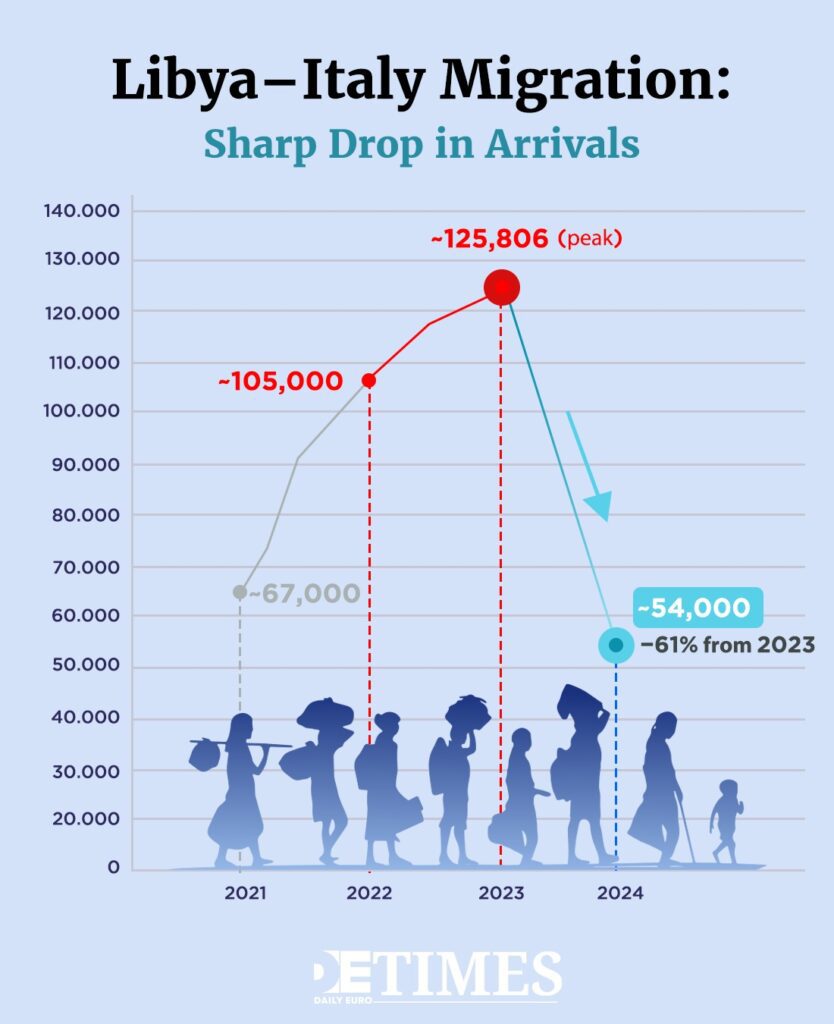Italy’s Prime Minister Giorgia Meloni has embarked on a clever diplomatic gambit. Rather than wrestling with Libya’s internal divisions alone, she is courting the country’s eastern Mediterranean neighbours to help stabilise the war-torn nation.
Regional Powers Hold Libya’s Future Keys
Libya remains split between competing administrations, with militia influence growing as stability deteriorates. The country sits at the crossroads of African migration routes and Mediterranean energy networks. Cooperation agreements between Italy and both Libyan administrations offer limited success when internal players lack real control.
Three months ago, Turkish President Erdoğan and Libyan Prime Minister Dbeibah joined Meloni in Istanbul for trilateral talks. The timing matters.
Eastern Med Partners Offer Stable Foundation
Greece, Cyprus, and Egypt formed a trilateral partnership focused on energy security and Mediterranean cooperation.
These nations share Italy’s concerns about Libyan instability but bring different strengths to the table. Egypt controls Libya’s eastern border and hosts hundreds of thousands of Libyan refugees. Cyprus serves as a neutral meeting ground with strong EU ties. Greece manages key shipping lanes and energy infrastructure.
In the energy sector alone, the three countries have committed to expanding joint projects and renewable technologies. Libya’s oil production reached 1.422 million barrels per day by late 2024, an eleven-year high. Connecting this output to stable eastern Med networks could benefit all parties.
Migration Numbers Tell Success Stories
Meloni’s regional approach is paying off.
Sea arrivals to Italy dropped by 61 percent in 2024, from 125,806 to 54,000. Early 2024 data showed roughly 10,000 fewer migrants crossing from Libya compared to 2023. The numbers speak for themselves.

Sceptics Question Long-term Viability
Critics would say this strategy puts too much faith on external actors.
Libya's problems run deeper than border management or energy deals. Militia groups control territory and resources. Political institutions remain weak. External partners have their own interests.
Türkiye’s recent energy agreements with Libya show how quickly alliances can shift. Meanwhile, the partners in the region pursue their own energy projects that may compete with Italian interests.
However, regional stability benefits everyone involved. Egypt gains economic opportunities and reduced refugee flows. Greece and Cyprus secure energy partnerships and shipping routes. Italy reduces migration pressure and expands trade networks.
Libya’s neighbours understand the country better than distant European capitals. They share historical and cultural ties and have managed cross-border relationships for decades.
For the time being, Meloni’s regional strategy is offering a temporary fix to excess migration in the eastern Mediterranean.
Keep up with Daily Euro Times for more updates!
Read also:
Italy: Meloni’s Victory With a Age Old Caveat
Meloni Rides Out the Transatlantic Storm in Style
Meloni: The Mediator Beyond Borders






